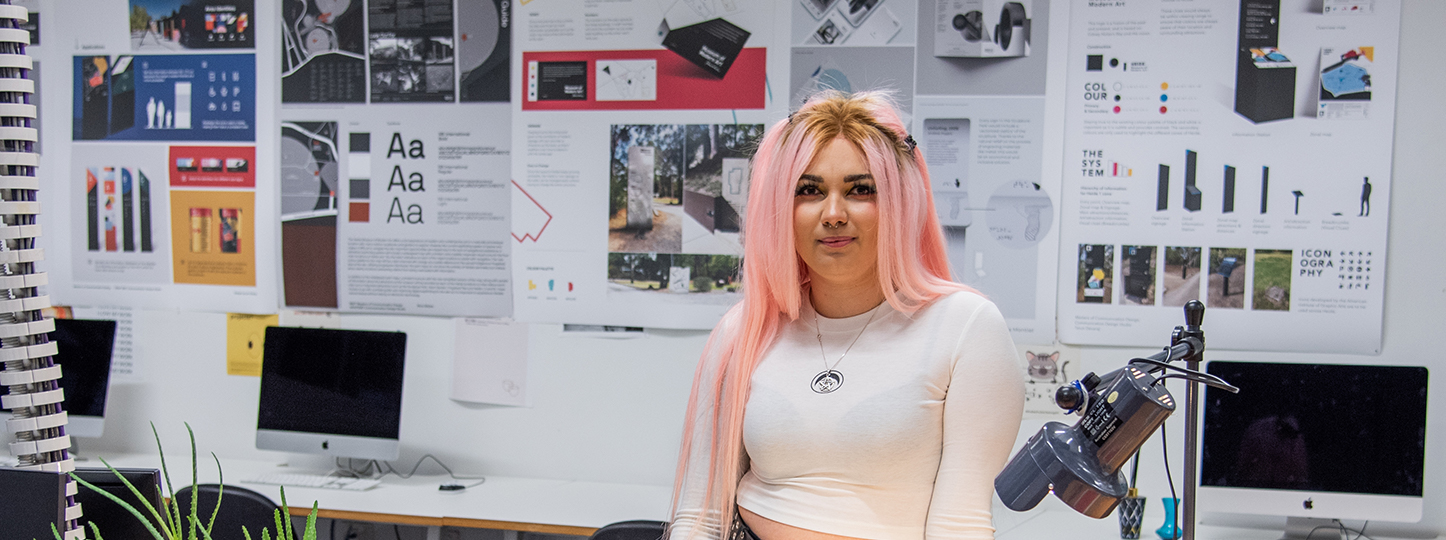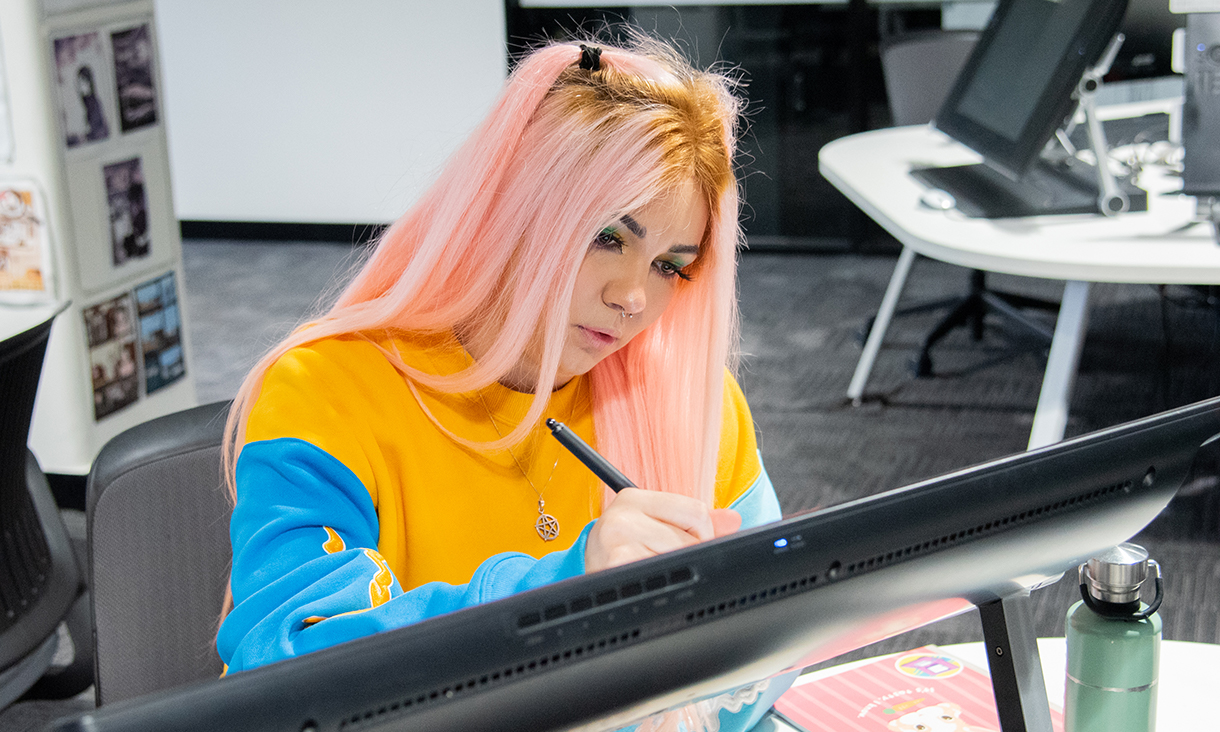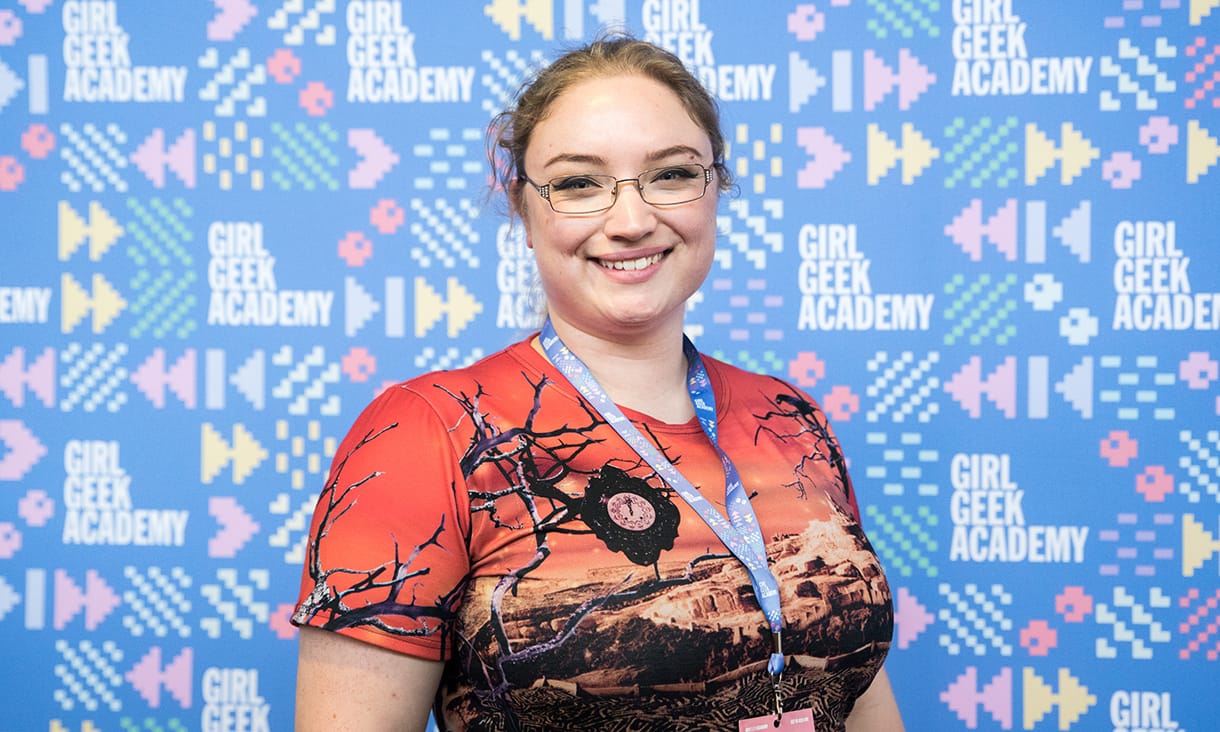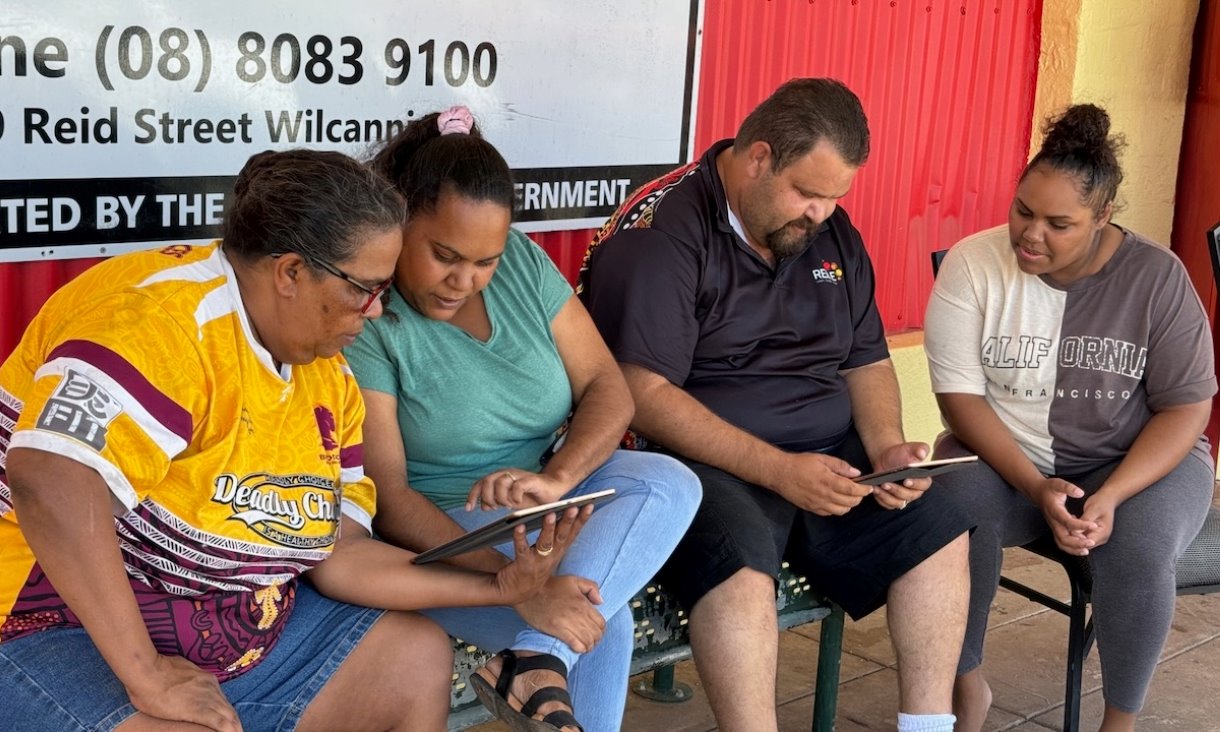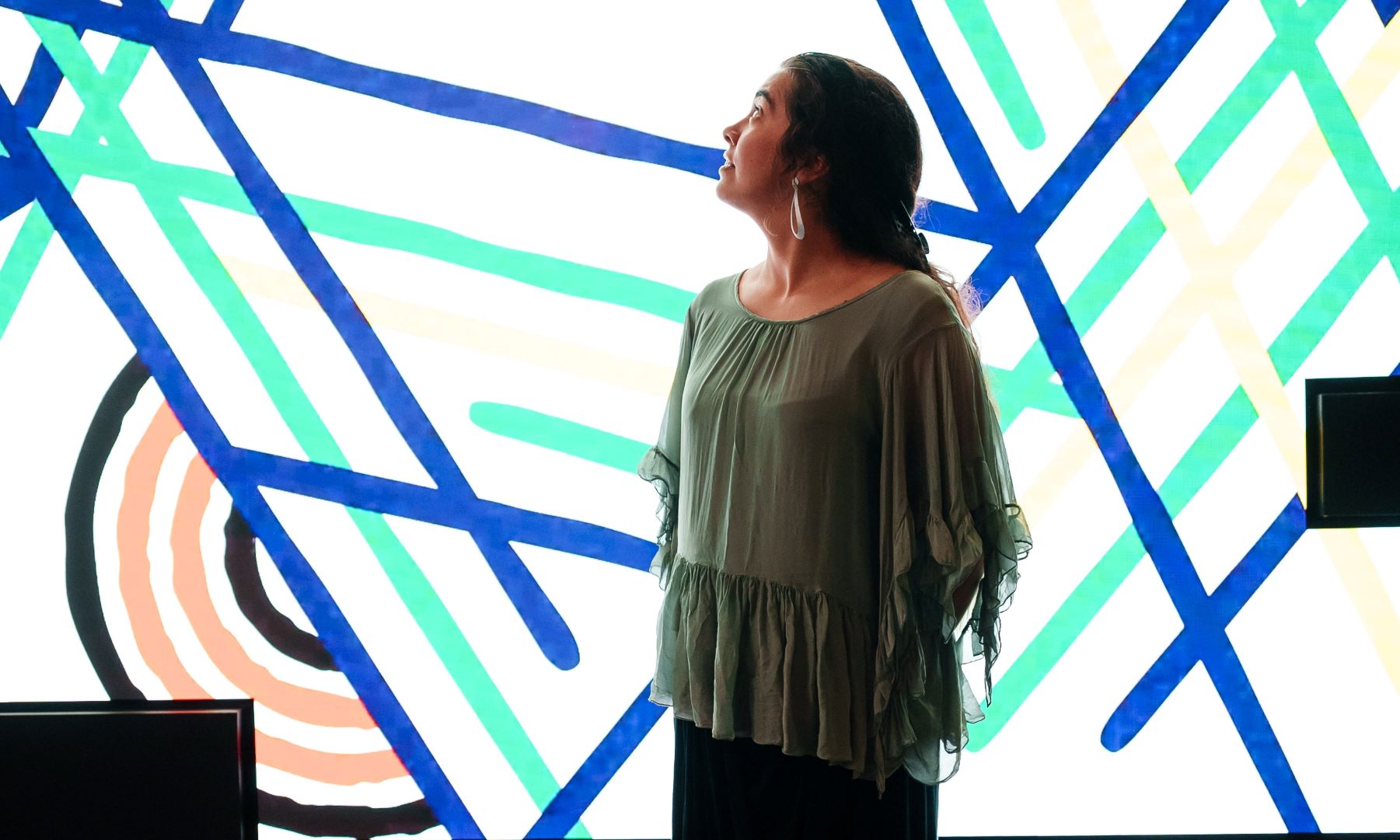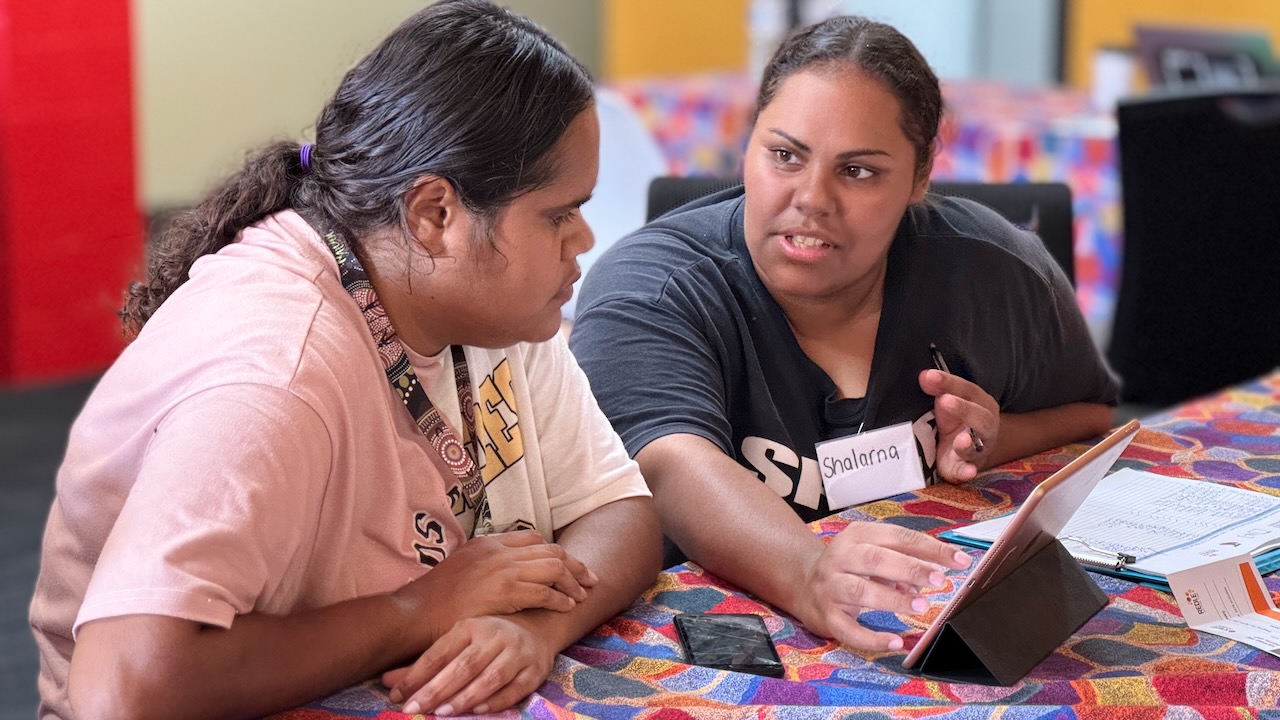On Thursday, Watson will join the class of 2020 in graduating from one of the most challenging years in recent memory.
Watson is a proud Yarrer Gunditji woman of the Maar Nation and moved to Melbourne in 2018 to study the Bachelor of Design (Games).
Watson said the Ngarara Willim Centre was incredibly supportive helping her settle into university.
“I’d go to the Ngarara Willim Centre with my friend and we would use it as a quiet space to study,” Watson said.
“They were super helpful with making sure I was enrolled correctly and applying for scholarships.”
While studying, she found work as an Indigenous game designer with DragonBear on the co-op adventure game Innchanted.
Innchanted is set in an Australian-inspired fantasy world where players run a magic potion brewery.
Watson’s role was to integrate Indigenous culture within the game design elements.
“I did a lot of consultation with Indigenous elders to make sure all the themes were appropriate, including the story, lore and characters,” Watson said.
“In Indigenous culture, for example, the earth is this primary thing we take sole responsibility for and that is something we reflected in the game.”
There is a growing trend of video games weaving Indigenous culture into their narrative, with the recently-released Virtual Songlines – a game about learning Indigenous techniques and tools to survive in the outback.
Watson said it was important to integrate Indigenous culture into video games as a new approach to learning about Aboriginal history.
“It’s a way of documenting Indigenous culture that isn’t just a book. It’s very non-confrontational, chill and fun way of experiencing it,” Watson said.
“When it comes to Aboriginal culture, it’s rare to have non-confrontational ways of telling our history because of how sad and dark it is.
“So, to have it in this completely different and area of play is really cool.”
Despite the frustration and near rage-quits, Watson said that there were some silver linings in 2020.
“The game design industry already does a lot of remote work, so it was almost like a bit of work experience,” Baker said.
“Instead of meeting job deadlines, it was assignment deadlines, so it was sort of similar.”
Making the industry more gender-inclusive
